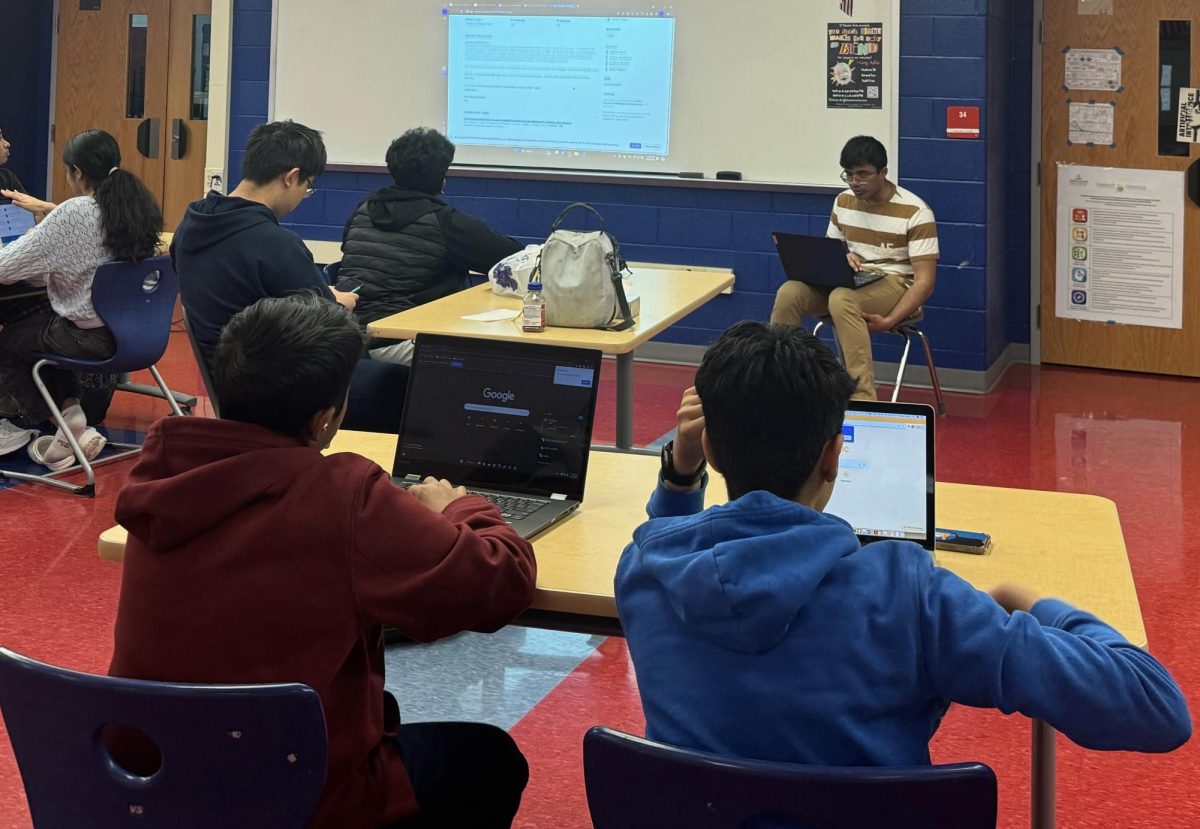Biocode, organized by Bioinformatics Society, took place on Saturday, April 20. The goal of this competition was for students to come and solve biology-related problems or create projects using code. Problems included topics such as translating DNA or modeling data.
Being the nation’s only middle school and high school hackathon, Biocode drew approximately 200 students. The competition consisted of three divisions: beginner, intermediate and advanced, with prizes being awarded to the top three teams in each division.
“We did a lot of outreach to schools in the area so we asked a lot of schools if they could advertise to their students and tell their students to come and check out Biocode,” senior and captain of Bioinformatics Society Zarif Azher said.
Students attending did not have to have a complex understanding of biology or computer science, with some problems requiring no knowledge of biology.
“I first joined the club when I was a freshman and I was just interested in biology and computer science, but I wasn’t sure how the two fields could be brought together,” Azher said. “That’s what drove us to create the event.”
The competition created a variety of problems for students to solve with bioinformatics.
“The competition I attended was coding up computer science solutions but the problems included biology references,” sophomore Rachel Du said. “For example, there were questions that asked about DNA and matching the nucleotide pairs. They wanted you to check if they matched under certain conditions.”
In addition to the hackathon portion of the event, Biocode also consisted of many workshops, including guest speakings from professors at George Washington University. The workshops allowed attendees to learn more about various skills and how bioinformatics is applied in the real world.
“I enjoyed the Python workshop where you could listen to and gain experience with Python, as well as the machine learning one where they held a demo,” Du said.
With all the workshops to host and problems to write, planning for the event started as soon as possible.
“The officers of bioinformatics came up with the exact structure and the prizes as soon as we could,” Azher said.
Despite the event going extremely well, there are still some improvements Bioinformatics Society would like to make in the future.
“We want people outside of the DC area to get involved and to reach people across the country,” Azher said. “To do that, we would like to try to partner with groups that are similar in other places across the country and hold digital events so we can really expand our reach.”
Overall, the competition was very successful in providing engaging activities as well as helping students figure out their interests.
“I think our success is getting people interested in this niche field. Bioinformatics is not a word you hear often but we still got 200 teenagers to come and show up and get excited about it,” Azher said.
Many attendees grasped new skills and gained valuable perspectives.
“I learned a lot through collaborating with others and I also learned how to debug more efficiently,” Du said. “I thought the event was eye-opening and I definitely would do it again.”


